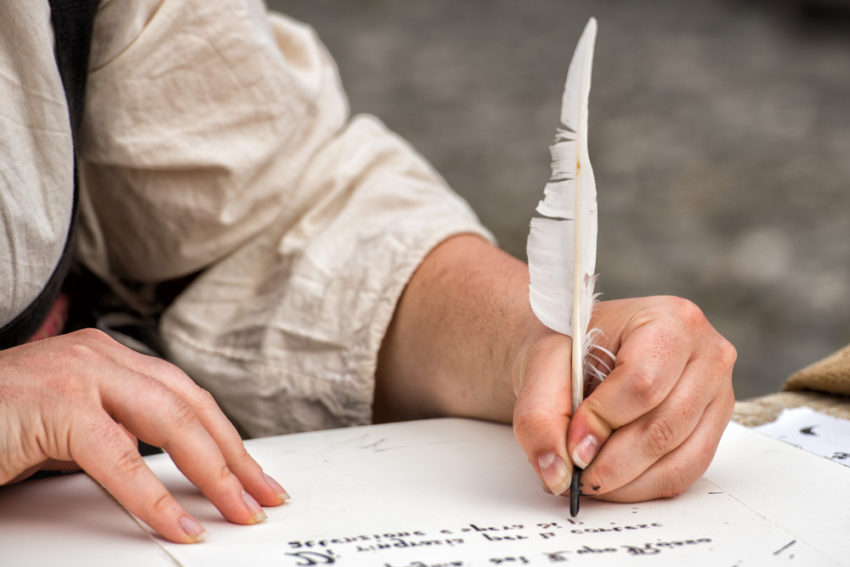The biblical scribe:
1. Was originally a recorder, as in someone who documents and keeps records. The first work of a scribe was “record keeping” and “copying.” This is a historical FACT. The record keeping was primarily financial (first), genealogical (second) and legal (third). As it relates to Scriptures, they would eventually become known for serving as copyists.
2. Writing (for comprehension) was a SECONDARY skill. Remember, people had no wide-spread need to read or write. They did have a need to DOCUMENT which which was practical for their time.
So any writing we see pre-Ezra in the administration of the church would have been for record keeping/historical purposes — not entertainment, endless personal testimonies, etc. (Check out the article, “More Than A Writer’s Anointing.”)
3. The role of the biblical scribe expanded throughout the course of the Bible. The scribal order under Moses ENDED. There would be FOUR MORE major dispensations of scribes (as a company set apart for Kingdom work) after that in the scriptures.
The Ezra Pattern, as we call it in the scribe school, was the pattern that would follow scribes into the New Covenant and the present day.
4. What we understand as creative writing, prose and poetry in biblical times was a rare gifting, a privileged skill. Not everyone was literate in ancient times. Education as we understand it today was non-existent.
David, for example, would have been trained in some form of scribal capacity at the hands of scribes in order to write. If a prophet, priest or king could WRITE… it was because of their social class and high educational standards.
These people would have been scholars! Yes, the prophets who “wrote” were scholars and some of them had their scribes write their words. They were also extremely knowledgeable about the protocols, laws, affairs, politics, etc. of their time.
THEY WERE NOT IGNORANT people. God USED SCHOLARS to release and record on many levels…. (Check out the article, Prophetic Word: Called To Fill In The Gap)
5. Libraries, NOT in the context we have today, were officially established under the reign of DAVID. He used scribes to oversee them for the purpose of storing documents pertaining to his kingship and the Kingdom. These libraries would also have served as treasuries or types of storehouses.
Want to learn more, I document some of these truths in my book, “The Scribal Anointing: Scribes Instructed in the Kingdom of Heaven.” Learning the truth about them will help YOU as a scribe and writer better understand who you are and appreciate the 21st century scribal nation.

